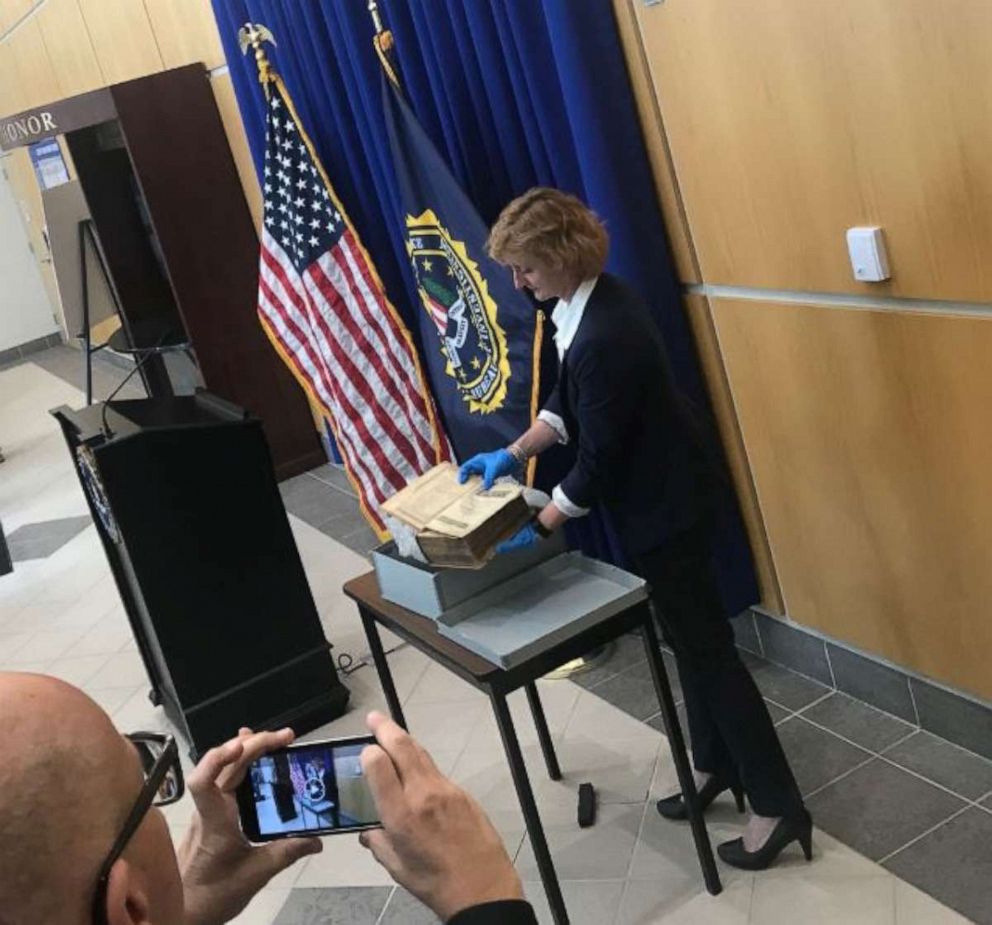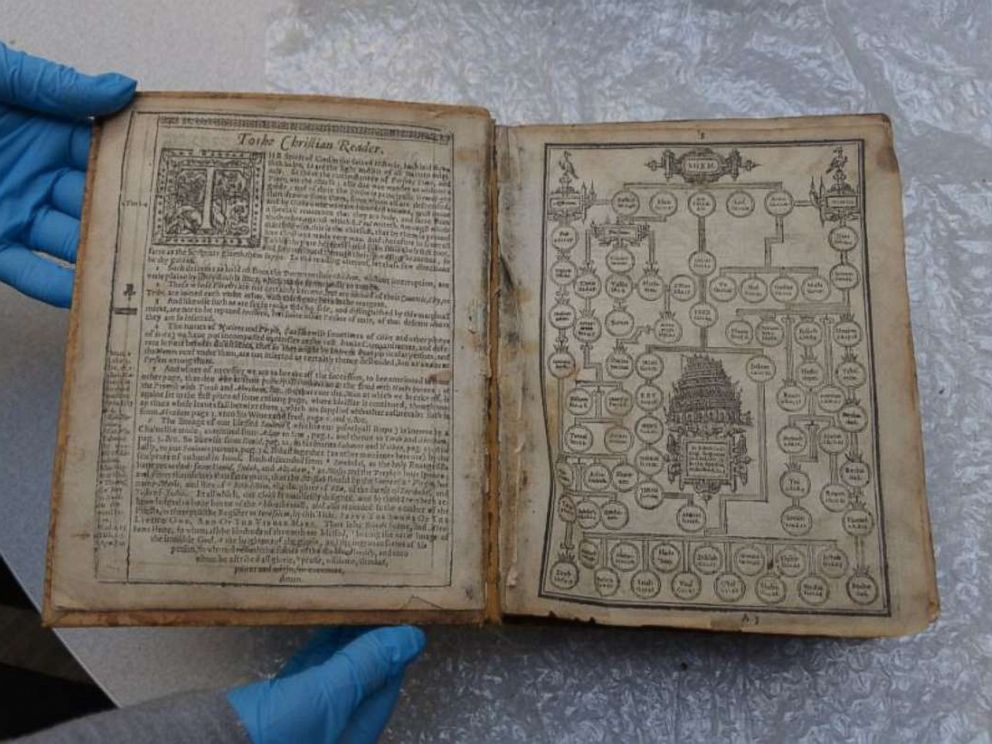The Leiden Pilgrim Museum in ABCN news
Article: What’s a two-year wait for a 400-year-old Bible.
The Carnegie Library in Pittsburgh unwrapped its Geneva Bible, dating back to 1615, on Thursday, two years after it was stolen. The Bible was recovered in the Netherlands — purchased by the American Pilgrim Museum in Leiden — and sent neatly to the U.S. in a small metal box and tucked in a decidedly post-17th century invention: bubble wrap.
The owner of the museum, dedicated to the refugees who fled England over religious persecution, discovered the book had been stolen when it was announced last year.

“This Bible is more than a piece of evidence in a case,” FBI Special Agent in Charge Robert Jones said at a press conference. “It is a priceless artifact of religious significance to people of many faiths.”
The thefts — as well as many books that were not stolen, but damaged — were discovered in July 2018. There were a total of 288 rare, historical books either stolen or damaged at the Carnegie Library, according to the Allegheny County District Attorney’s Office. Some were worth tens and even hundreds of thousands of dollars.
The stolen and damaged material was worth a total of about $8 million, according to authorities.
Allegheny County District Attorney Stephen Zappala commended the museum owner for being “an honest person” and contacting authorities.

“Since the investigation was initiated, with the help of the FBI, 18 books have been recovered, 293 associated maps, plates and pamphlets have been recovered from areas all over the United States of America, as well as London and now the Netherlands,” Zappala said.
The recovered edition is a rare version of a Geneva Bible, called a Breeches Bible. The word “breeches” refers to a printing change in the story of Adam and Eve that refers to them wearing breeches.
The investigation and recovery of the missing books continues with authorities asking anyone with information to get in touch with the Allegheny County District Attorney’s Office.
Carnegie Library’s main location and five smaller branches were established in the late 19th century thanks to a $1 million donation by steel magnate Andrew Carnegie, once acclaimed as the richest man in the world.
Luckily, there is plenty left to see in the Leiden Pilgrim Museum.

